
 Flash News
Flash News
Igli Tare officially appointed as Milan's new Sporting Director
Two brothers attempt to kill cousin in Kukës, one arrested after a year on the run
Artan Lame passes away, his mother confirms: This cursed moment came
2-year-old Dutch boy falls from third floor of Rinas hotel, taken to hospital
Vlora/ He hit the minor and fled the scene, the 27-year-old woman is wanted
The first prisoners from Denmark are expected to arrive in Kosovo in April 2027.
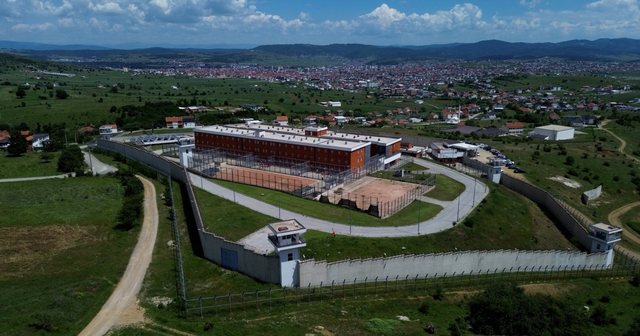
The first group of prisoners from Denmark is expected to arrive in Kosovo in two years.
The General Director of the Kosovo Correctional Service (KKS), Ismail Dibrani, tells Radio Free Europe (RFE/RL) that they are expected to be placed in the Gjilan city prison in April 2027.
This transfer is part of a ten-year agreement between Kosovo and Denmark, which foresees the use of the Correctional Institution in Gjilan for the transfer of 300 prisoners from the Danish state.
In return, Kosovo will benefit from over 200 million euros.
The Kosovo Assembly ratified the agreement on May 23, 2024, two years after it was signed.
The Director of the KCS, Dibrani, emphasizes that, according to the agreement, Kosovo must meet Danish standards, both in terms of infrastructure and in the training of correctional staff.
However, the renovation process has not yet begun.
"We, as Kosovo, can announce the tender today, but we have new requests from the Danish side. Their promises are that by the end of June they will send us the final requests, and we will then open the tender during July," Dibrani tells REL.
The tender is expected to include the renovation of existing cells and workshops, the creation of new spaces for visitors, as well as the training of staff to meet European standards.
Next month, 20 Kosovo correctional officers will travel to Denmark to attend basic training and practical work in Danish institutions.
Currently, the Gjilan prison serves as a detention center for more than 200 people from Kosovo. Once the renovations are complete, this institution will house prisoners serving Danish sentences.
"For this, new workshops must be built, to provide employment for the prisoners who will arrive," explains Dibrani.
According to the agreement, the people to be transferred will not be Danish citizens.
Denmark has pledged not to bring in high-risk prisoners.
They will not be convicted of war crimes or terrorism, or persons with serious mental disorders.
The Danish Ministry of Justice has not responded to questions regarding the start of the use of cells.
Previously, this ministry had stated to REL that the prisoners it will send to the Gjilan prison are persons sentenced to deportation from Denmark.
"According to the treaty, prisoners must serve their sentences under the same conditions as they would have served in a Danish prison, including physical conditions in line with conditions in a Danish prison," the Danish ministry said.
The Kosovo Center for the Rehabilitation of Torture Survivors (KRRT) has raised concerns about the transparency and implementation of the agreement.
"A year after the agreement entered into force, it is still not clear where the Kosovar detainees currently in Gjilan prison will be housed," says Mehmet Musaj from the KRCT, an organization that monitors the correctional system in Kosovo.
According to the KCS, current detainees will be gradually moved to other institutions, as the correctional system has sufficient capacity.
Musaj also raises concerns about respecting the human rights of prisoners from Denmark, who are not Danish.
"What will be the communication model - is English known by everyone, do our officers also know English, how will medical files and services be managed," he tells REL.
Human rights activists in Denmark also expressed concerns about the agreement between Denmark and Kosovo.
Kosovo will make available capacities for 300 prisoners for a 10-year period./ REL
Latest news



Tirana Lake Park, a campaign center for Noizy. The signatory is silent
2025-05-23 21:55:02

What's happening in Gaza, the struggle for survival in times of war in pictures
2025-05-23 21:02:54

Knife attack at Hamburg train station, 12 injured
2025-05-23 19:54:58
US court suspends order banning Harvard from admitting foreign students
2025-05-23 19:22:41
Igli Tare officially appointed as Milan's new Sporting Director
2025-05-23 19:01:12




Istanbul Agreement, Ukraine and Russia exchange 800 prisoners
2025-05-23 17:54:20



Belina Pupa reacts to serious accusations in Australia for drug cultivation
2025-05-23 16:59:55


The Llogara tunnel opens tomorrow, until when will it be free of charge?
2025-05-23 16:09:31





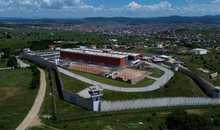
The first prisoners from Denmark are expected to arrive in Kosovo in April 2027.
2025-05-23 14:51:26
May 11/ Celibashi approves the summary tables of results for 4 districts
2025-05-23 14:50:04
Trump threatens tariffs on EU goods and iPhones
2025-05-23 14:39:47
Artan Lame passes away, his mother confirms: This cursed moment came
2025-05-23 14:26:48
Divorce map in 61 municipalities, the South far ahead of the North
2025-05-23 14:15:16
2-year-old Dutch boy falls from third floor of Rinas hotel, taken to hospital
2025-05-23 14:01:40
Europeans, you have slandered us.
2025-05-23 13:54:00
Vlora/ He hit the minor and fled the scene, the 27-year-old woman is wanted
2025-05-23 13:41:24
Arrested today in Lalëz, who is Flobens Meçja, was paid by Çopja to kill Alibej
2025-05-23 13:33:43
Here's how many hours you should sleep depending on your age
2025-05-23 13:32:16
Berisha reveals when he will leave politics
2025-05-23 13:12:15
Three proven ways to dismantle an autocrat
2025-05-23 13:03:16
"The goods are 800-cents", how Altin Morina trained RENEA and made bargains
2025-05-23 12:59:07
Berisha: Poja was Rama's guest, Surreli was used for gang meetings
2025-05-23 12:49:22



Meta: The criminal regime destroyed the elections, a threat to democracy
2025-05-23 12:16:48



From money to betrayal, everything turns upside down for these three signs
2025-05-23 11:32:44



Albanians, the second most rejected at EU borders in 2024
2025-05-23 10:41:04





RENEA action in Durrës, checks mainly in Sukth and Shijak
2025-05-23 09:33:13


Foreign exchange, May 23, 2025
2025-05-23 08:47:28

Horoscope, what do the stars have in store for you today?
2025-05-23 08:15:27
Temperatures are rising, what is the weather expected to be like during the day?
2025-05-23 08:01:25
Morning Post/ In 2 lines: What mattered yesterday in Albania
2025-05-23 07:48:25

Diaspora vote, Berisha: The envelopes were filled in Albania
2025-05-22 22:45:58
"Notify the DEA", Abilekaj: Internationals do not trust our institutions
2025-05-22 22:30:07
Operation "Bridge", journalist: SPAK was used as an election certifier
2025-05-22 22:07:35
Berisha: Rama won 28 mandates with criminal gangs
2025-05-22 21:58:18

Fevziu clarification for Artan Lamen: He is still alive, but in a coma
2025-05-22 21:44:33
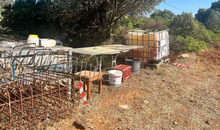

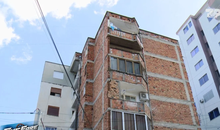

Which of the punitive measures has the EU started to remove from Kosovo?
2025-05-22 20:49:38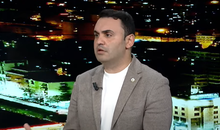
Këlliçi: SPAK acted after the elections, directed by Rama
2025-05-22 20:42:10



EU Integrity for Sale: Tirana Edition
2025-05-22 19:51:52
Plane crashes into homes in San Diego, California, several casualties reported
2025-05-22 19:49:43
May 11th Elections, Source: With the Bulgarian Train, he wins 300 thousand votes
2025-05-22 19:34:16
Citizens pay out of pocket for health funds at the lowest level since 2017
2025-05-22 19:21:43
After three terms/ Erdogan: He will not run for president again
2025-05-22 19:08:35

SPAK seized two properties in 'Kodra e Diellit', Veliaj and Xoxa's lawyers react
2025-05-22 18:42:25

Symbolic or essential? The risk of women's representation in the new Parliament
2025-05-22 18:14:54


Kaja Kallas: We have started to lift the measures against Kosovo
2025-05-22 17:20:29


How to store aromatic herbs so they stay fresh for weeks
2025-05-22 16:50:07

Operation URA, a bridge that connected crime, power and the silence of SPAK!
2025-05-22 16:30:21
